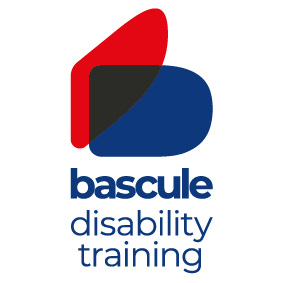Is a lack of management training impacting respect and inclusivity in your workplace?

If you’ve ever had a good manager, you’ll know how important they can be in helping you to be the best version of yourself. If you’ve ever had a bad manager, you’ll probably have an equal understanding of the impact they can have.
A manager or supervisor that is poor at their job can impact motivation, productivity, career progress, potential, wellbeing and even staff retention. In fact, in a recent survey a staggering 28% of workers cited that having a negative relationship with a manager has been a reason for them leaving a job. That’s a total of almost one in three people.
So, why do we have such a problem with poor management in the UK?
Well, part of the reason is the method of progress we have in our workplaces. Put simply, when we do well in a particular position, we move up the ladder, and it’s not long before we are line managing other staff members. Sadly, in a vast majority of cases, this happens without any extra training.
The Chartered Management Institute proved this when it reported that as many as 82% of new managers in the UK are what it labels as “accidental managers” – those adopting a management role with no formal training in different areas of management or leadership.[1]
Now- taking that statistic into consideration- it’s no wonder that we are seeing other shocking stats in the news, such as the following ones released earlier this month (by DEJI Digital / Green Park) :
- 73% believe their leadership fails to foster respect and inclusivity.
- 66% of UK workers indicate their workplace lacks anti-discrimination or anti-harassment policies.
- 68% report the absence of clear and accessible pathways for reporting discrimination or harassment.
- 70% state the lack of supportive resources, such as counselling services.
- 75% confirm the absence of training sessions addressing bias and promoting professional conduct.
Sadly, these statistics reflect the fact that our managers are not receiving the training required to properly foster a culture of inclusivity in the workplace. Whilst a majority may have excelled in a particular area of their jobs to receive a promotion, businesses are failing to upskill in many other areas including aspects of leadership that involve inclusivity – which are clearly critical.
We cannot expect managers to have the answers without understanding the issues. It’s highly likely that 73% are not promoting respect and inclusivity in the workplace as they are unaware of exactly how to do it, and if they’ve not been trained, can we blame them? Indeed, these managers may in fact be horrified to learn that are not being as inclusive as they think they are, discrimination and misunderstandings can occur with no ill intent.
Without proper meaningful training, that addresses these issues, there will always be shortcomings. In my last blog, I discussed the issues regarding the Government’s Disability Action Plan, specifically where it proposes businesses use an accreditation badge system to demonstrate disability inclusivity and awareness. I illustrated that it is training we should accredit, and that sub-standard tick-box learning should be avoided at all costs.
In the same way, we must ensure that those in new positions of management engage in an extensive, high standard of leadership training that has a meaningful focus on how to become correctly and successfully more inclusive. Whilst businesses are tempted to fast-track managers into a supervisory role and are rolling out tick-box EDI learning training programmes, this will not pave the way for respect and inclusivity in the workplace.
There are also a vast number of other reasons why your managers complete suitable training around inclusivity, such as the positive impact it can have on your workforce, not to mention the other benefits an inclusive ethos will have on your overall business. There’s also the legal aspect. You may want to stop to consider that the highest award from a disability discrimination case in 2022-23 was £1,767,869 and the median was over £15k.
So, if you feel like your staff may be part of that 73% who feel their managers fail to foster respect and inclusivity- maybe it’s time to stop and make a new, positive start, by introducing impactful and meaningful training processes.
CHRIS JAY, MANAGING DIRECTOR -BASCULE DISABILITY TRAINING
For more information on our training programmes, follow this link.
[1] Bad management has prompted one in three UK workers to quit, survey finds | Management | The Guardian




